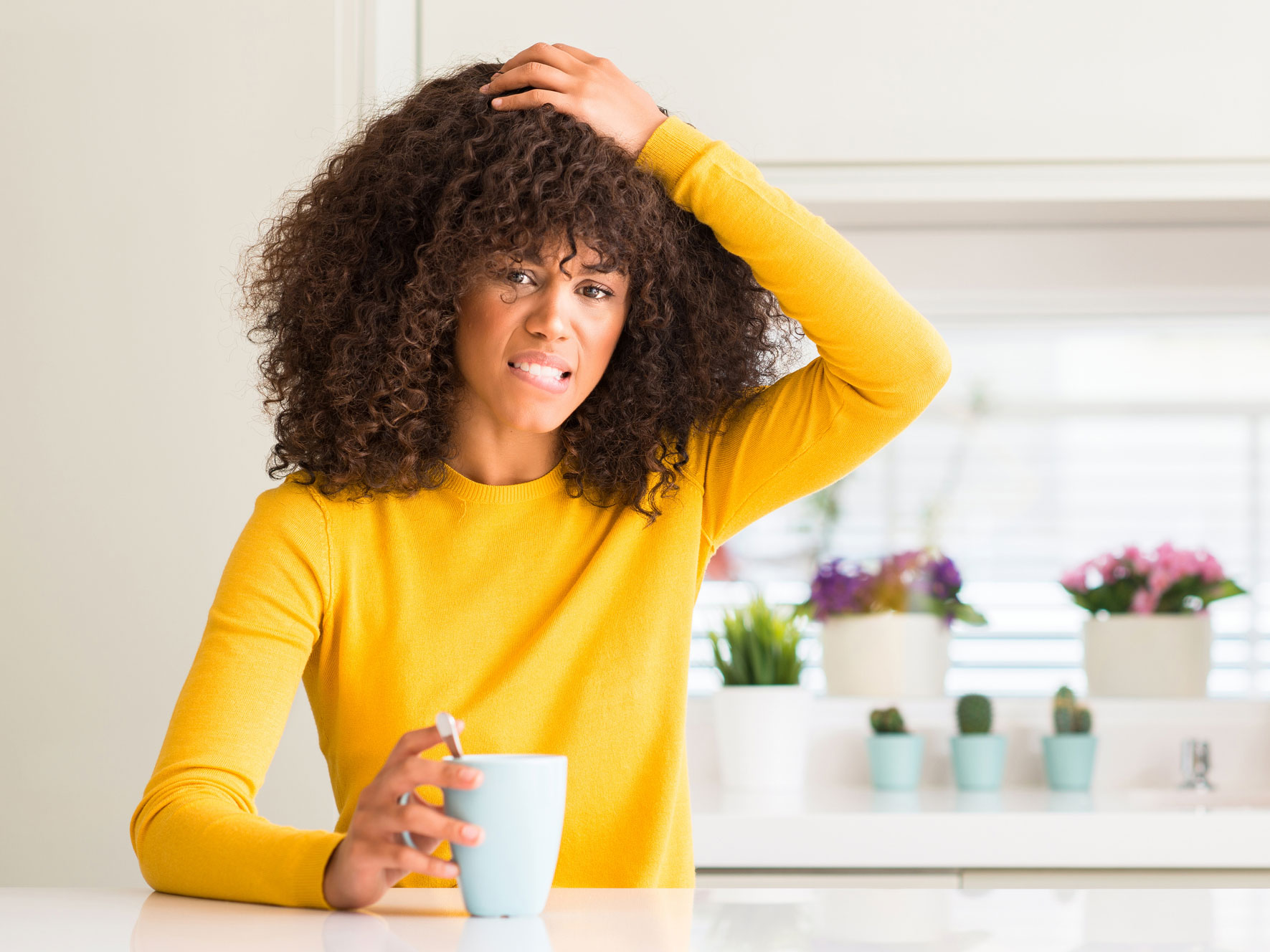Get Easy Health Digest™ in your inbox and don’t miss a thing when you subscribe today. Plus, get the free bonus report, Mother Nature’s Tips, Tricks and Remedies for Cholesterol, Blood Pressure & Blood Sugar as my way of saying welcome to the community!
Caffeine: Defining the line between migraine trigger and reliever

Migraines are the third most common health problem in the world – with over one billion adults worldwide suffering from the condition.
If you’re one of them, you know that there are certain things that can “trigger” an attack. These range from weather patterns, sleep disturbances, hormonal changes, and stress to medications and certain foods and beverages.
In fact, one of the migraine triggers that’s considered to be extremely common is caffeinated drinks. My own doctor recommended I avoid caffeine completely.
But, and this is weird for someone like me for whom the opposite is true, caffeine can help control migraine symptoms and provide relief. That’s why you find it as an added ingredient in some over-the-counter migraine pain relievers.
According to the American Migraine Foundation, caffeine affects the activity of a naturally occurring and necessary brain substance called adenosine. Adenosine levels in the blood go up during migraine attacks. Adenosine acts by sticking to specific receptor molecules on the surfaces of some brain cells. Caffeine can block the action of these receptors, thereby stopping the effects of adenosine.
So, caffeine’s connection to migraine is certainly complicated. Maybe that’s why few studies have looked at this suspected trigger at all, much less in-depth enough to find out why it’s both reliever and trigger.
Finally, thanks to researchers at Beth Israel Deaconess Medical Center, Brigham and Women’s Hospital and the Harvard T.H. Chan School of Public Health, we have some answers. If migraines are a problem for you, now you can know how much might trigger your next migraine attack… or how much might help…
The magic number
The researchers followed 98 adults with frequent episodic migraine. Each participant kept an electronic diary every morning and every evening for at least six weeks.
They reported the total servings of caffeinated coffee, tea, soda and energy drinks they consumed. They also filled out a twice-daily headache report detailing the onset, duration, intensity, and medications used for migraines since the previous diary entry.
The team used a self-matched analysis, comparing each individual participant’s incidence of migraines on days with caffeinated beverage intake to that same participant’s incidence of migraines on days with no caffeinated beverage intake. This allowed them to eliminate other potential factors such as sex, age, behavioral and environmental factors that could have skewed the results.
And, they finally came down to the magic number…
Related: 7 steps to fewer migraines
Overall, the researchers saw no association whatsoever between one to two servings of caffeinated beverages and the odds of headaches on the same day.
However, they did see higher odds of same-day headaches on days participants consumed three or more servings of caffeinated beverages.
In other words, one or two cups of coffee or tea a day shouldn’t cause a problem for people like me who have migraines (and could even be beneficial in preventing them). But, when you hit three or more, you could be in trouble.
Your current caffeine consumption
Now, although the magic number the researchers found was three, they did have a caveat to those results…
Among people who rarely consumed caffeinated beverages, even one to two servings increased the odds of having a headache that day.
This means that if you’re not already a regular caffeine drinker and you have migraines, any amount could trigger another attack. So, you need to take your current lifestyle into account before applying the result of this study to you.
But coffee drinkers (and migraine sufferers) everywhere can rejoice. We finally know how much caffeine is fine, and how much could knock us on our feet.
Editor’s note: If you suffer from chronic pain and conventional medicine has let you down, or you just want to escape the potential dangers of OTC and prescription drugs even for occasional pain, you must read Conquering the Pain: An Alternative Doctor’s Fresh Look at the Newest and Oldest in Alternative Pain Therapies. Click here to get your copy today!
Sources:
- 1-2 caffeinated drinks not linked with higher risk of migraines; 3+ may trigger them — Beth Israel Deaconess Medical Center
- Caffeine and Migraine — American Migraine Foundation













